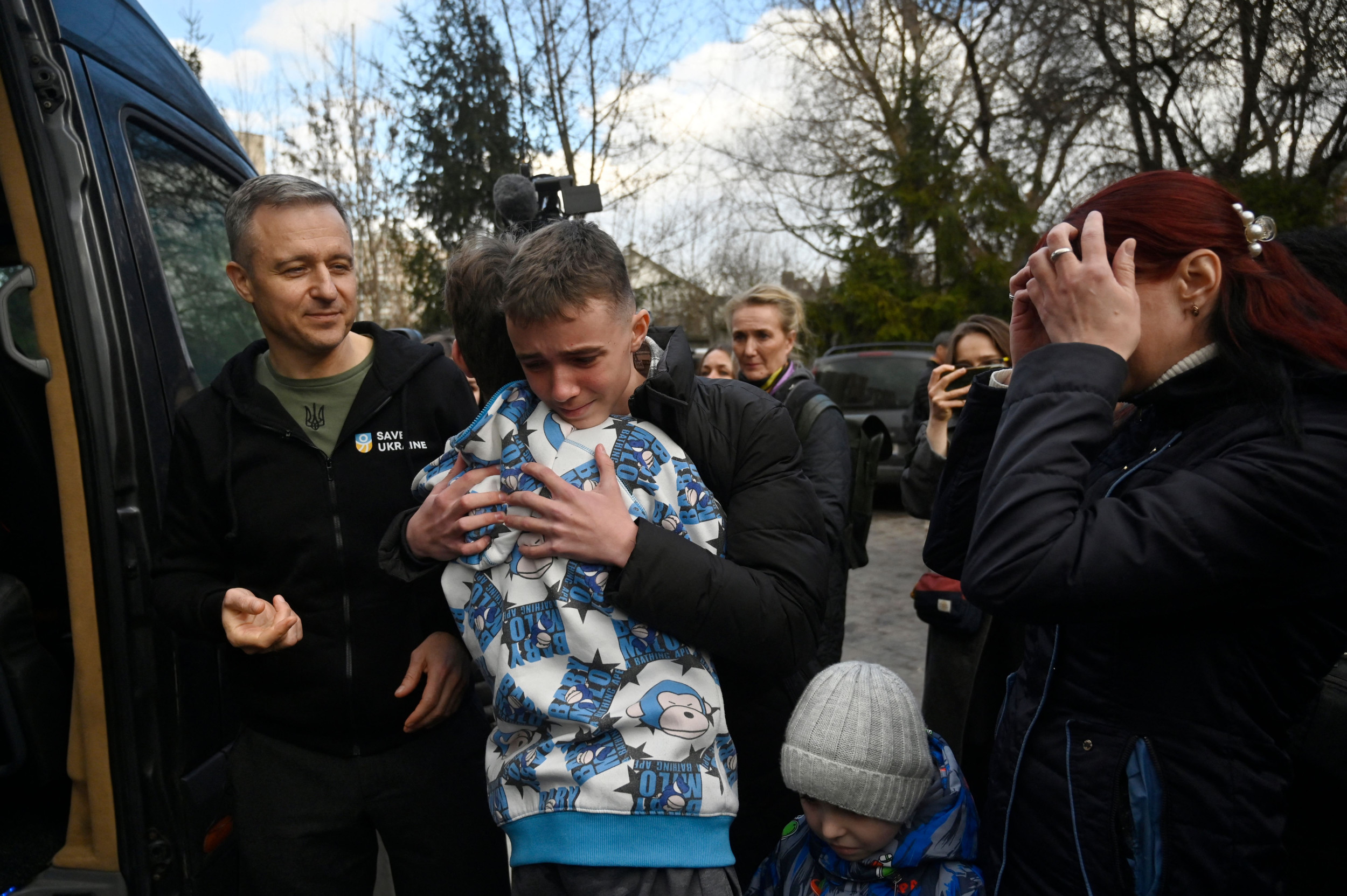Russia’s ambassador to the United States has told Newsweek that his government is prepared to act upon any request to facilitate the return of Ukrainian children brought to Russia amid the ongoing conflict between the two nations.
Around 700,000 Ukrainian children have been evacuated to Russian territory since the war began in February 2022. The governments of Ukraine and its top supporter, the United States, have alleged that such transfers amounted to a mass abduction, serving as the basis for an arrest warrant issued against Russian President Vladimir Putin by the International Criminal Court (ICC) in March of this year.
But after Russian Foreign Minister Sergey Lavrov faced a barrage of questions on the subject at a press conference Sunday during the United Nations General Assembly in New York, Ambassador Anatoly Antonov criticized what he referred to as a Western media “perception” on the matter that “seems shaped more by propaganda spread by unscrupulous politicians in Kiev and Washington than by facts.”
“We have nothing to hide in this regard,” Antonov told Newsweek. “We are open and prepared for a constructive dialogue on this pressing issue.”
“We stand ready to provide the names of all minors currently on Russian territory for their own safety,” Antonov said. “We maintain a comprehensive list of these children. Any child for whom we receive requests from their legal representatives—parents or guardians—will be promptly reunited with their families. We haven’t kidnapped anyone; quite the opposite, we have rescued these children.”
The Russian envoy pointed specifically to discussions held by Russian authorities, including Putin’s special representative for children’s rights Maria Lvova-Belova and the Special Representative of the Secretary-General of the United Nations for Children and Armed Conflict Virginia Gamba during the latter’s visit to Moscow in May.
Newsweek has reached out to the Office of the Special Representative of the U.N. Secretary-General for Children and Armed Conflicts, the Office of Ukrainian President Volodymyr Zelensky, the Ukrainian Embassy to the United States, the Ukrainian Ministry of Foreign Affairs and the Ukrainian Ministry for Social Policy’s Department of Children’s Rights and Health Improvement for comment.
Days before Lavrov’s press conference, Zelensky made reference to the issue during his address to the U.N. General Assembly. Speaking to international heads of state and officials, the Ukrainian leader said Tuesday his administration was aware of “the names of tens of thousands of children and have evidence on hundreds of thousands of others kidnapped by Russia in the occupied territories of Ukraine and later deported.”
“We are trying to get children back home, but time goes by,” Zelensky said at the time. “What will happen to them? Those children in Russia are taught to hate Ukraine, and all ties with their families are broken… This is clearly a genocide.”
But Antonov saw such allegations as part of a growing trend in which he felt Moscow had been blamed without sufficient evidence for atrocities and incidents such as the Bucha massacre near Kyiv in March of last year and the explosive sabotage of the Nord Steam 2 pipeline in the waters of the Baltic Sea last September.
Ukrainian and U.S. officials have accused Russian troops of killing more than 450 people and committing other atrocities such as rape and torture in Bucha, while Antonov attested to “Russia having clear evidence that it was entirely staged.”
The Nord Stream pipeline bombings also initially sparked Western speculation as to potential Russian involvement, but no official consensus has been reached by investigating agencies. Citing intelligence reviewed by unnamed U.S. officials, The New York Times reported in March that evidence suggested it was a pro-Ukrainian group behind the attack, though the Zelensky administration has denied any such connection.
Antonov cited a more recent article by The New York Times that pointed to a Ukrainian missile being the most likely munition that caused the deaths of at least 15 people and wounded 30 others earlier this month at a market in the eastern Ukrainian city of Kostiantynivka. Ukrainian and U.S. authorities claimed that Russia was behind the attack.
“The publication of such articles gives us hope that not all is lost, and that U.S. media still uphold journalistic ethics,” Antonov said. “Professional correspondents, of whom there are many in the United States, seem to have the desire to delve deeper into various issues.”
Antonov said he hoped such reporting “will inspire further investigations into the Ukrainian staging in Bucha, as well as the terrorist attacks on the Nord Stream pipelines, and will clear thing up with the West’s narrative surrounding alleged poisonings of the Skripals and Navalny, purportedly orchestrated by Russia.”
Sergei Skripal, a former Russian military officer who had secretly served as a double agent for British intelligence, and his daughter, Yulia, were targeted by an apparent assassination attempt using a nerve agent in Salisbury, England in March 2018. Russian opposition activist Alexei Navalny was also allegedly poisoned during a flight from Tomsk to Moscow in August 2020.
In both cases, as well as in a number of others that have befallen outspoken critics of the Kremlin, sometimes to deadlier effect, the U.S. has alleged that the Russian government had a hand in the apparent poisonings and other forms of assassination plots, a charge vehemently denied by Moscow.
Speaking to the Western skepticism surrounding Russia’s narrative on such events, Antonov stated that “it is evident how challenging it is for veracious information—including for the materials provided by the Embassy—to reach the readers.” He argued that “any insights from Russian official sources are promptly branded as Kremlin propaganda.”
“The truth faces an exceedingly thorny path in reaching the U.S. audience,” Antonov said. “Nevertheless, the American public is prepared and even eager for an unbiased analysis of the facts. We have much to share, and rest assured, there are professionals who are both knowledgeable and passionate about their work.”
“The lack of such articles in the local information landscape is starkly evident,” he added. “We are ready to contribute to changing this situation for the better.”

